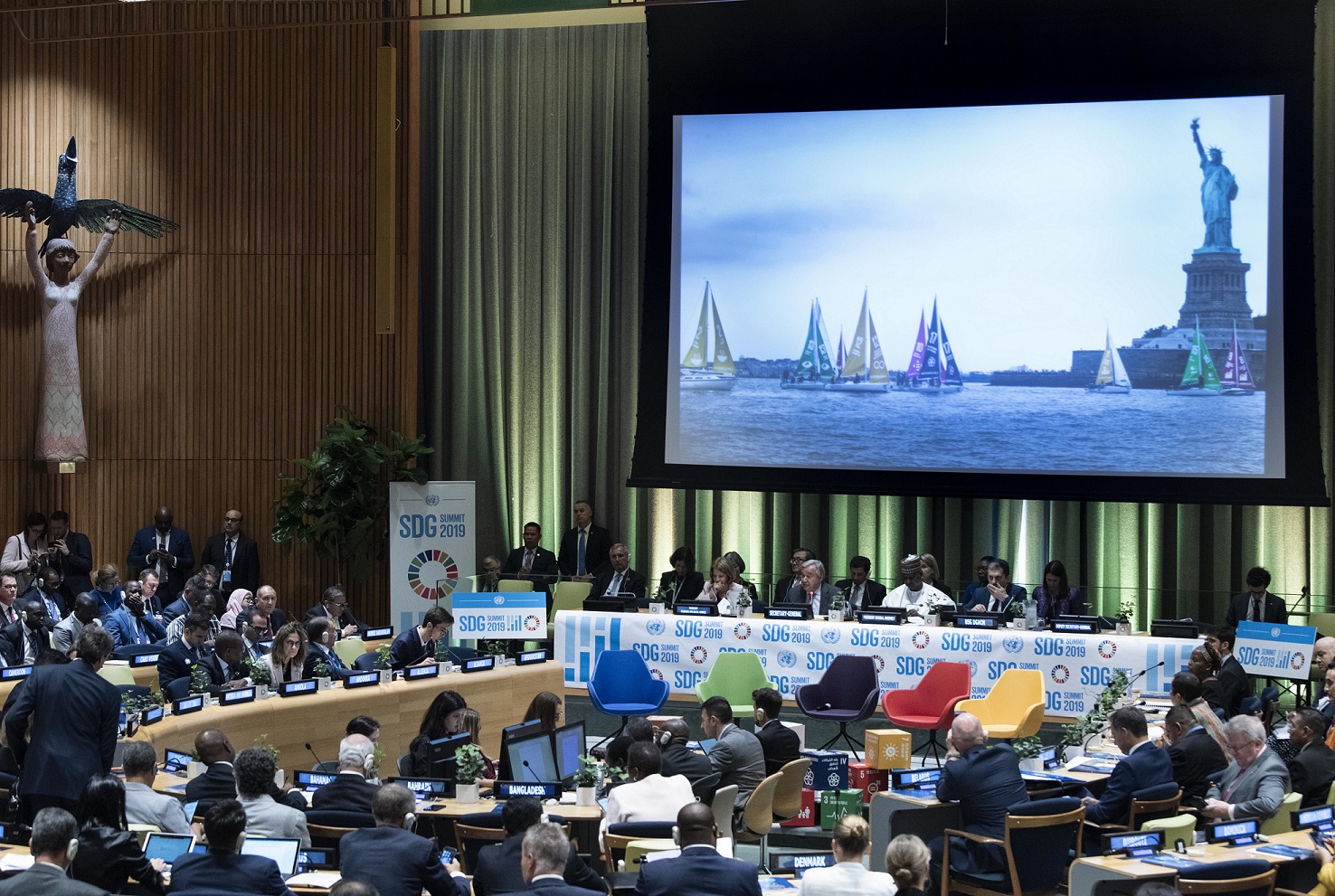With the recent Business Roundtable statement and the Financial Times’ series on expanding corporate purpose beyond short-term shareholder value, there was plenty of momentum going into United Nations (UN) General Assembly and Climate Week. Several events and discussions addressed the private sector’s role in driving progress towards the Sustainable Development Goals (SDGs). Throughout the week, themes of increasing urgency around corporate alignment with the Global Goals, harnessing finance to shape markets towards a sustainable future, and incorporating the right policies to regulate climate-related risks in the market.
Here are some highlights:
UN Private Sector Forum on Sept 23
- Ahead of the forum, 87 major corporations committed to align their operations with the global goal to limit the temperature rise to 1.5C, as part of the “Business Ambition for 1.5°C” campaign.
- Anand Mahindra, chairman of the Mahindra Group, spoke on how profit and sustainability can go hand-in-hand, and that climate action represents a huge market opportunity in the decades to come.
SDG Business Forum on Sept 26:
- The importance of gender equality and diverse leadership as a crucial part of the equation in aligning corporate purpose with climate action.
- Former Unilever CEO Paul Polman: “The cost of inaction is rapidly becoming significantly higher than the cost of action.”
- Corporate purpose is of increasing importance in attracting talent, as employees want their employers’ values to reflect their own.
HSBC’s Financing a Sustainable Future on Sept 24
- Finance shouldn’t aim to cap the growth of emerging markets because our planet can’t accommodate it. Instead, banks should aim to finance the growth of emerging markets at their own rhythm in a sustainable way.
- Kathleen McLaughlin, Walmart Chief Sustainability Officer, remembered former CEO Lee Scott’s 2005 words which led Walmart in the direction of creating shared value through products and services that matter to people, after Hurricane Katrina in the southern US brought out the best in Walmart. “Katrina asked this critical question, and I want to ask it of you: What would it take for Walmart to be that company, at our best, all the time? … What if the very things that many people criticize us for – our size and reach – became a trusted friend and ally to all, just as it did in Katrina?”
- Policymakers and regulators have a role in mitigating climate risks and scaling green finance by increasing the amount of reliable, standardized reporting required of companies
Exclusion & Engagement in Sustainable Investing on Sept 26:
- Exclusion and engagement in investing are not binary. Some investors engage with companies on material environmental, social, governance issues multiple times, then eventually exclude if changes are not satisfactory.
- Corporate directors are not yet well-versed in the shift from shareholder primacy towards stakeholder expectations. Because shareholders vote to approve directors, shareholders still hold more power than other stakeholders.
- Asset management firms are ramping up tools and recruiting corporate engagement specialists to persuade companies to address environmental, social, governance issues in the most fitting ways.
DSM’s No Longer Business as Usual on Sept 26:
- Danone CEO Emmanuel Faber said radical transparency is the key to doing business. His biggest challenge is the pace of the company’s change because it’s too slow for some stakeholders and too fast for others.
- Brian Moynihan, CEO of Bank of America, chairs the International Business Council, which is working on a LEED-like certification that all companies can work towards, including measures on carbon neutrality, minimum wage, philanthropy, etc.
- Harvard Business School Professor Rebecca Henderson called for rewiring the capital markets to price externalities like carbon emissions. She cited collaboration across industries and the appropriate level of government support – government in support of and in control of capitalism – as keys for companies to meet SDG goals
CECP also hosted a breakfast in conjunction with Business in the Community, our new partner in the UK. Corporate speakers including Eduardo Martínez, President of UPS Foundation, and Dominic Vergine, Head of Sustainability and Corporate Responsibility at ARM, urged corporate leaders to use the SDGs not to inform a side initiative, but to rewire their businesses and integrate corporate responsibility into the entire business.
Throughout the week, there was widespread encouragement for the private sector moving quicker, and agreement that there must be cross-sector collaboration to set more ambitious goals in order to meet 2030 emissions reduction goals. With hundreds of corporations around the globe working to embed sustainability into their strategies, the winds have changed in a favorable way.


